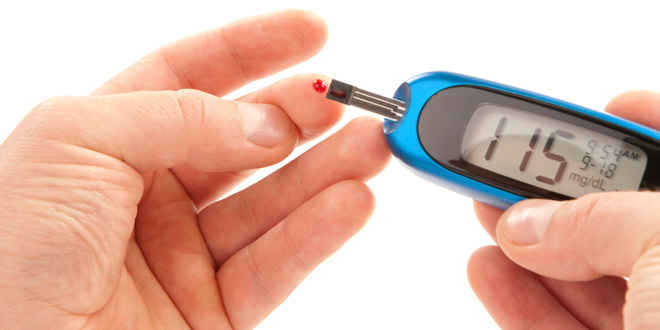
6 myths that revolve around diabetes
“Oh, no, I can’t take this sweet. I am diabetic.”
We hear this phrase very commonly these days.
Diabetes aka ‘sugar’ is a household name these days. I am sure that there is not a single household in Pakistan where people suffering from this disease are not known. But things have gone far beyond.
November 14 marks “World Diabetes Day” every year – because the birthday of Sir Frederick Banting, who discovered insulin as a treatment of diabetes along with Charles Best, falls on the same date.
The theme of this year (2015-2016) is “healthy living”. Around 3.77% of the diabetics come from lower and middle income countries. As diabetes is causing a major global burden, healthy lifestyle changes are the key to prevent 70% of the cases.
There is a long running debate about dietary concerns among diabetics. As they have to be little selective about their eating habits, there is a lot of confusion among the masses about what to eat and what to avoid.
Following are some of the common questions encountered by physicians from diabetics.
Q1: ARE LOW CARBOHYDRATES BEST FOR DIABETICS?
This is a common misconception amongst people. They worry a lot about the carb-content in their meal. Remember, diabetes doesn’t mean to curb the carb completely from your diet.
The best choice is to take complex carbohydrates which are abundant in all natural products, like fresh vegetables, fruits, whole grains, nuts. These items contain large amounts of fiber, which delay the absorption of a meal from the gut, preventing after-meal sugar spikes in the blood.
Q2: WILL SKIPPING BREAKFAST LOWER MY BLOOD SUGAR LEVEL?
A study done in 2013 about diabetics who didn’t take their breakfast revealed that such people tend to have higher levels of insulin and blood sugar after the lunch for few hours. A healthy breakfast (comprising of protein and healthy fats) helps stabilize the blood sugar level and keep you full throughout the day.
Q3: ARE ARTIFICIAL SWEETENERS HEALTHY?
It is reported in Health Day that long term usage of artificial sweeteners (saccharine) is more likely to result in higher fasting blood glucose levels.
Q4: ARE SUGAR-FREE DIETS GOOD ENOUGH TO EAT?
Each of us, whether diabetic or not, is surrounded by a storm of diet foods. Be it diet soft drinks or diet sweet. The bakers at the sweet shop add a lot of fat (ghee) in order to balance the lack of sugar.
A journal of nutrition study, from 2011, states that higher level of fat in the blood affects body’s ability to clear sugar from the blood effectively. So diet food isn’t always great to have.
Q5: IS TEA BENEFICIAL FOR DIABETICS?
Yes, it is. But not to forget, most health benefits of tea come from green and black tea, not the milky brew which we commonly sips away. It is found out that tea improves the sensitivity in type-2 diabetes. It also lowers the risks of certain other diseases like blood pressure, cancer and heart diseases.
Q6: IS BITTER GOURD/GRAPE FRUIT HELPFUL IN DECREASING DIABETES?
This concept is pretty viral in Pakistan. People consider that diabetes is due to high sugar and gourd (karela) has a lot of bitterness in it; so they both have a fight in the tummy and eventually the bitter gourd wins. This is ridiculous. Bitter gourd and other vegetables are beneficial as they contain complex carbohydrates, preventing glucose spikes in the blood after the meal, yes, but that doesn’t mean that they’ll magically get rid of your disease.
These are some of the many misunderstood facts about diabetes.
Awareness and education are the key factors to getting the best control of blood glucose levels. It should be the priority of all diabetics to be crystal clear about their diet plan. A registered dietitian would give you the best personalized advice on it.
Staying physically active and indulging into healthy eating habits promises a healthy long life. Stay healthy and stay aware.
About the author: Myda Tahir is a medical professional graduated from DMC, who is now doing her Post Graduation from CPSP. She is a passionate writer with a special interest in health, education and creativity.

